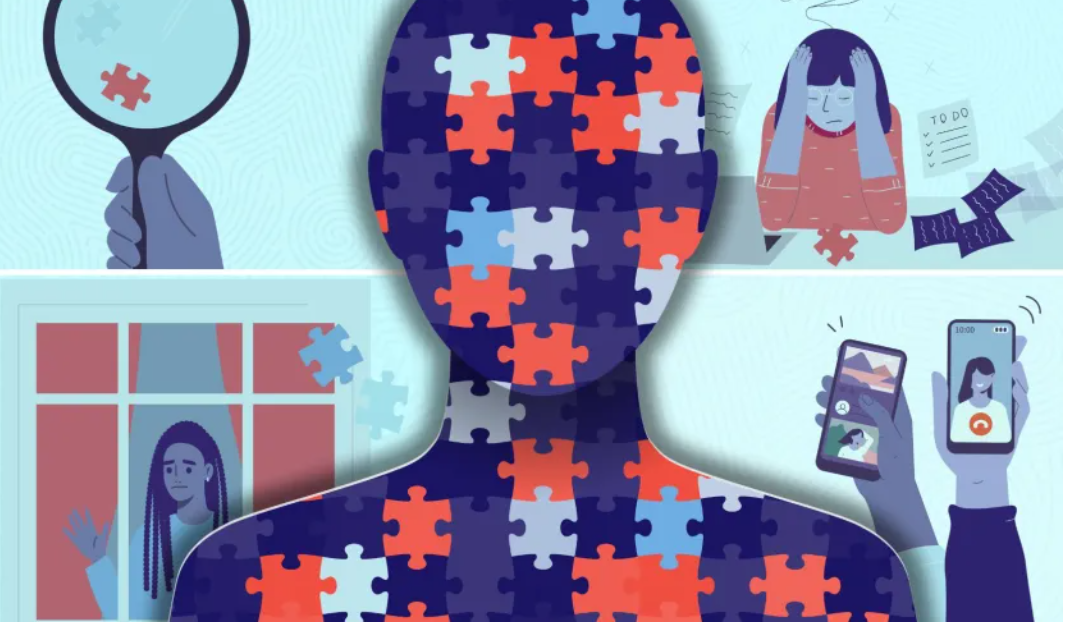Teen Mental Health: Essential Tips for Recognizing When Your Child Needs Help

Also, read
Related News
SRM University-AP Students Secure 3rd Place at HackSecureX International Hackathon 2026

Students from SRM University-AP, Amaravati, have once again demonstrated their growing global footprint in technology and innovation by securing 3rd place at the HackSecureX International Hackathon 2026, an esteemed global competition held on January 16–17, 2026. The achievement highlights the university’s strong emphasis on experiential learning, interdisciplinary research, and industry-relevant problem-solving.
SRM Students held 3rd Place at HackSecureX International Hackathon 2026
The winning team comprised Rajat Kumar Singh and Shruthi Bhagawan, third-year B.Tech students in Computer Science and Engineering (CSE) and active members of Next Tech Lab (NTL), the university’s flagship student-led innovation and research ecosystem. Representing SRM University-AP on an international stage, the duo competed against some of the brightest young minds from across the world.

The HackSecureX International Hackathon 2026 was organised in collaboration with several globally reputed institutions, including the University of Texas at El Paso (USA), University of Piraeus (Greece), University of South Florida (USA), and SUNY Polytechnic Institute (USA). The event attracted significant international participation, with over 280 shortlisted teams from 14 countries, making the competition both intense and highly selective.
Aligned with the hackathon theme “Code. Comply. Conquer.”, participants were challenged to develop innovative solutions at the intersection of artificial intelligence, cybersecurity, and cyber law. Rajat and Shruthi stood out by presenting a solution that addressed a real-world issue often overlooked in the digital ecosystem user awareness and understanding of privacy policies.
Their project, titled “Privy,” is a privacy-policy intelligence framework designed to help users better understand how their personal data is collected, processed, and governed. In today’s digital landscape, users frequently agree to lengthy and complex privacy policies without fully comprehending their implications. Privy seeks to bridge this gap by automatically analysing privacy policy documents and translating them into clear, actionable insights.
The system identifies key aspects such as types of user data collected, intended data usage, third-party sharing practices, and applicable legal frameworks, including regulations like the General Data Protection Regulation (GDPR). By simplifying dense legal language into accessible summaries, Privy empowers users to make informed decisions while encouraging organisations to adopt more transparent data practices.

The global jury commended the team for the solution’s practical relevance, clarity of design, and strong alignment with regulatory compliance requirements. Their effort was recognised with a cash award of USD 250 along with an official Winner’s Certificate, further validating the impact and quality of their work.
Reflecting on the achievement, Rajat Kumar Singh shared that the team deliberately chose to focus on a problem that affects millions of users daily but rarely receives adequate attention. Rather than building superficial technical complexity, they emphasised accuracy, usability, and real-world applicability, which resonated strongly with the hackathon’s evaluation criteria. He also noted that the team plans to further develop Privy into a scalable and deployable solution that organisations can seamlessly integrate into their digital workflows to enhance accountability in data privacy practices.
Shruthi Bhagawan attributed the success to rigorous hands-on preparation in cybersecurity concepts, HackSecureX International Hackathon 2026, strong team collaboration, and continuous mentorship from Next Tech Lab. She highlighted that the hackathon experience reinforced her aspiration to work at the convergence of AI, cybersecurity, and cyber law, creating solutions that foster digital trust and user empowerment in an increasingly data-driven world.

Also Check: SRMIST Kattankulathur Clinches National Glory at Formula Bharat 2026: Camber Racing Paints the Town Red
This accomplishment reflects the innovation-driven culture and academic excellence nurtured at SRM University-AP. Through platforms like Next Tech Lab, students are encouraged to tackle complex global challenges, collaborate across disciplines, and gain exposure to international research and development ecosystems.
By securing a top position at the HackSecureX International Hackathon 2026, SRM University-AP students have not only brought pride to the institution but also reaffirmed its growing reputation as a hub for cutting-edge technology education and impactful innovation on the global stage.
Vani Jha is a creative content writer with over 2 years of experience in producing engaging, informative, and well-researched content across various domains. Her expertise lies in SEO, research, editing, and content and copywriting. With a proven track record in enhancing online presence and audience engagement, Vani excels in crafting compelling articles, blogs, and other written materials.
Related News
Exam News
CUET UG 2026 Registration LIVE: Last Date Tomorrow, Correction Window Details @cuet.nta.nic.in
3 Feb, 2026
JEE Main 2026 Session 2 Registration Begins: Apply Online @ jeemain.nta.nic.in
2 Feb, 2026
CLAT 2026 IPU BA LLB Admission 2026 Announced: Dates, Eligibility, Colleges & Admission Process
31 Jan, 2026
CUET PG 2026 Registration Dates Extended, Apply Until January 20 at exams.nta.nic.in
15 Jan, 2026
Featured News
Pandit Deendayal Upadhyaya Telecom Excellence Awards 2024: Apply by September 30 at awards.gov.in
12 Aug, 2024
Top 20 Management Colleges in Telangana
12 Aug, 2024
Top 20 Colleges for Psychology in India
11 Aug, 2024
Top IITs Launch Future-Proof Courses : New Tech-Savvy Courses in 2024
11 Aug, 2024
Hindenburg Research: A Crucial Study for Commerce Students
10 Aug, 2024
College News
SRM University-AP Students Secure 3rd Place at HackSecureX International Hackathon 2026
10 Feb, 2026
Amity Student Among 11 National Winners of JETRO’s Talent for Japan Student Contest 2025; Direct Link Here
5 Feb, 2026
SRMIST Kattankulathur Clinches National Glory at Formula Bharat 2026: Camber Racing Paints the Town Red
4 Feb, 2026
Discover Your Future in Law with VITSOL – UG Law Webinar 2026
26 Jan, 2026









